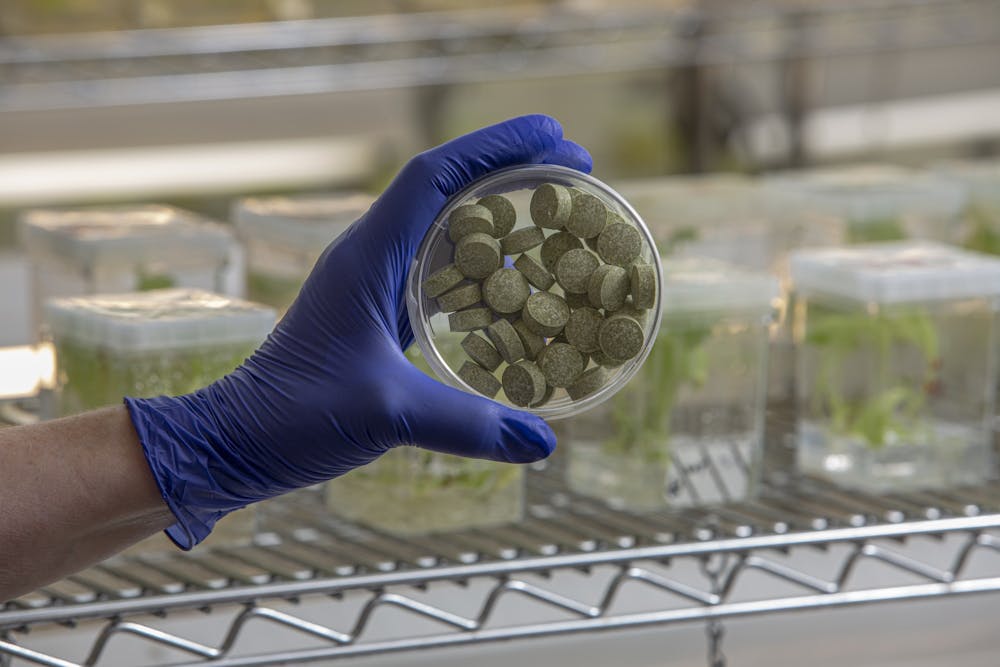
Penn Medicine launched a clinical trial to test a chewing gum that can trap COVID-19 in saliva last Wednesday.
The chewing gum, designed by the School of Dental Medicine researcher Henry Daniell, has the ability to block the transmission of COVID-19. The efficacy of the gum is being tested by Penn Medicine employees who are currently battling COVID-19, Penn Today reported.
The cinnamon-flavored gum is derived from plant-based materials containing ACE2, a protein found in human blood and saliva. Compounds in the gum can trap a protein found in COVID-19 and drastically diminish the viral load.
The trial plans to recruit 40 participants from Penn Medicine who recently had symptoms of COVID-19. They will be given a pack of experimental gums and will be instructed to chew four gum tablets and take eight sample tubes of saliva over three days. On the fourth and final day, they will come to the clinic to chew a tablet of gum and get an examination to submit their sample.
“This technology may have the ability to reduce the spread of COVID-19 and the flu as well as make it safer for dentists and other healthcare providers to provide care to patients who we know are infected,” Mark Wolff, Morton Amsterdam dean of Penn Dental Medicine, told Penn Today.
Daniell and his colleagues are also working on other gums to target a broader range of other respiratory viruses, including influenza.
Daniell has also partnered with the Penn Center for Innovation to create a startup company to increase global accessibility further. Michael Poisel, who manages PCI Ventures — a branch of PCI working with researchers to help launch new startups based on Penn technologies — attested to Daniell's passion for accessibility.
“One of the exciting things about the technology is the potential to help people in countries that don’t have the resources to benefit as broadly from the current vaccines and other therapies,” Poisel told Penn Today.
According to Daniell, the gum represents the first Investigational New Drug submission for a human therapeutic drug that does not require protein purification, which reduces the costs and increases the accessibility of the gum. This means the gum can reach those who need it the most without requiring a refrigerator and special handling.
“Henry is really focused on making sure we can offer this in a cost-effective manner so the gum, once FDA approved, could be distributed as widely as possible and benefit as many people as possible,” Poisel told Penn Today.
The Daily Pennsylvanian is an independent, student-run newspaper. Please consider making a donation to support the coverage that shapes the University. Your generosity ensures a future of strong journalism at Penn.
Donate







